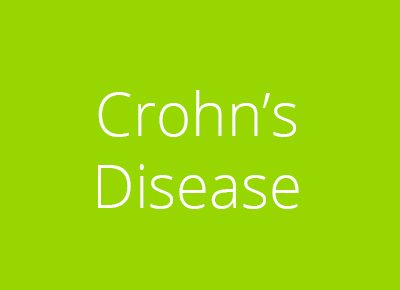What is it?
Crohn’s disease is otherwise known as inflammatory bowel disease, a chronic autoimmune disease, meaning the individuals immune system attacks the body’s own cells. Crohn’s disease can occur in any portion of the gastrointestinal tract, anywhere from mouth to anus. Crohn’s disease can cause inflammation of the intestine walls and the formation of ulcers.
What are the symptoms?
Symptoms of Crohn’s disease include abdominal pain, fever, diarrhea, loss of appetite, weight loss, fatigue, gastrointestinal bleeding, foul smelling stools, and pain passing bowel movements.
How is it diagnosed?
An endoscopy, colonoscopy may be used to visualize the colon, as well as small bowel follow-through, upper GI series, barium enema, capsule endoscopy, may be necessary to further evaluate for Crohn’s disease.
How is it treated?
There are a variety of medications available to control inflammation in the intestine, as well as antibiotics, if needed, to treat abscesses or fistulas (abnormal connections that occur between the bowel and nearby organs). If these treatments are not effective, surgery may be required to remove the diseased portion of the intestine.
Are there any complications?
As Crohn’s disease is an autoimmune condition, it is possible to have skin rashes, joint disease, eye disease, kidney stones, liver problems, etc. as it can affect other organs.
